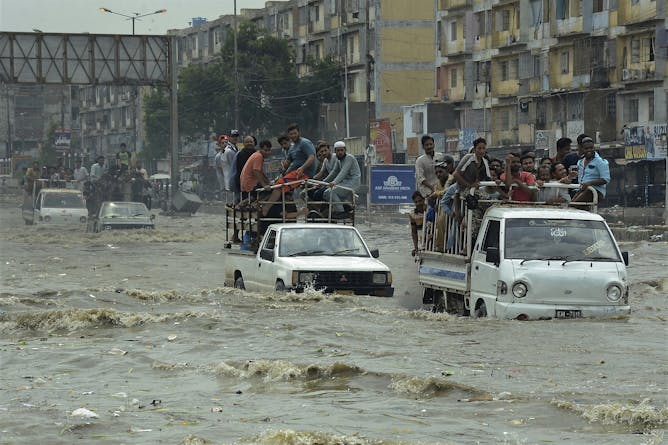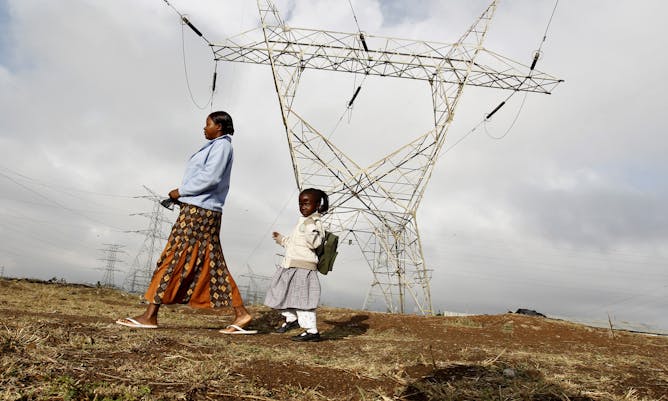|
Experts estimate that by the middle of the 21st century climate change is likely to displace up to 300 million people. If this group formed a country, it would be the fourth-largest in the world. But, says Gulrez Shah Azhar, nobody is making a plan for these “climate migrants” - some of whom already exist and are being pushed out of their homes by rising heat or extreme weather events.
Kenya hopes to have its first nuclear plant online anywhere from 2022 to 2027 and to lead a new African push for nuclear power. Ghana, Nigeria, Egypt and Uganda are also pursuing nuclear plans with foreign partners. Brendon J. Cannon argues that it would be inexcusable as well as profligate for Kenya to go down this pricey path.
|

Pakistani commuters travel on a flooded street following a heavy rainfall in Karachi, Aug. 31, 2017.
AP Photo/Shakil Adil
Gulrez Shah Azhar, Pardee RAND Graduate School
By 2050, climate change impacts such as storms and drought could displace up to 300 million people worldwide. Nations should recognize 'climate migrants' and make plans for aiding and resettling them.
|

High voltage electrical pylons on the outskirts of Kenya’s capital Nairobi.
Reuters/Thomas Mukoya
Brendon J. Cannon, Khalifa University
Kenya's government, while promising cheaper power to consumers may actually be undercutting this promise in its pursuit of nuclear power plants and other costly projects.
|
Science + Technology
|
-
Andre Ramos, Federal University of Santa Catarina; Marina Empinotti, University of Beira Interior
The combination of knowledge and communication, along with a few other fundamental conditions such as liberty and respect , leads to social, cultural and technological development.
-
Alan Fitzsimmons, Queen's University Belfast
New research reveals the true nature of 'Oumuamua, the cigar-shaped rock that recently visited Earth's solar system.
-
Alexandra Lamont, Keele University
If you find yourself humming White Christmas this year don't worry ... you're not alone – and the science of earworms suggests why.
|
|
Politics + Society
|
-
Roger Southall, University of the Witwatersrand
South Africa's ruling ANC has a new leader - Cyril Ramaphosa. But this doesn't mean that the country is out of the woods. Political instability remains a real possibility.
|
|
Cities
|
-
Brendan Canavan, University of Huddersfield
How to make your holiday better for the environment through sustainable tourism.
|
|
Arts + Culture
|
-
J. Andrew Deman,, University of Waterloo
Science fiction is a genre meant to imagine the future, but in the case of Star Wars, it also looks to the past—revisiting old imperialist battles.
-
Yorick Smaal, Griffith University
Our histories tell us armies make men, but in World War II, conflicted provided a rare and surprisingly open space for men to experiment with their femininity and sexuality.
|
|